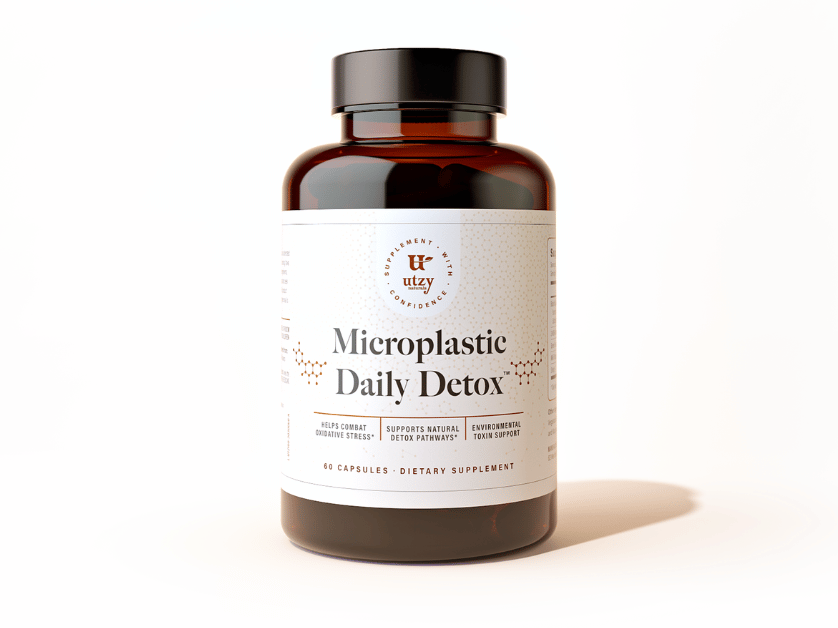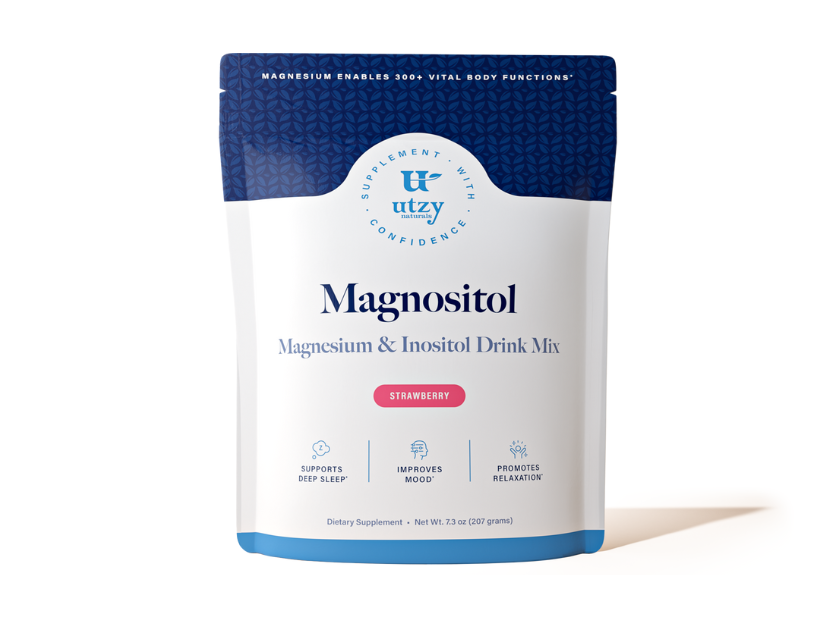Save up to 25% during our FRESH START Sale! SHOP NOW
Save up to 25% during our FRESH START Sale! SHOP NOW
shop
learn

6 Surprising Effects of Poor Sleep
March 22, 2021 4 min read
Everyone has experienced a bad night’s sleep.
Fatigue plagues you the following day which impacts your thinking and decision making.
In fact, the National Highway Traffic Safety Administration estimates that 100,000 crashes happen every year as a result of drowsy driving (1).
While the short-term effects of poor sleep are self-evident, the effects of long-term sleep problems are surprising.
This article will explore some of the surprising effects of long-term sleep loss.

Decreased immune function
According to the Mayo Clinic, people who do not get quality or sufficient sleep are prone to illness when exposed to something like the common cold (2).
While there are a number of mechanisms that support your immune system, some suggested reasons for this is a result of increased inflammation.
Additionally, there are protective cytokine, antibodies and cells that are reduced with a lack of sleep. This makes your body less equipped to combat illness.
Decreased libido
A 2019 study examined the effects of sleep on sexual health and found that long-term sleep issues had a negative effect on overall sexual health in the subjects of the study, including libido (3).
This particular study was examining patients that experienced difficulty with sleep at least 3 nights per week that lasted for a minimum of 3 months.
While the proposed mechanisms are too complex to explore in this short review article, the evidence is clear that long-term sleep complications have an effect on hormonal health, which results in a decreased libido.
Increased risk of heart health issues
There is a wealth of evidence on the negative effects that chronic sleep complications result in cardiovascular health issues.
One study examined over 4000 healthy adolescents and monitored all of the risk factors associated with cardiovascular health. The subjects who were classified as having fairly bad or very bad sleep were found to have increased odds of developing all risk factors associated with poor heart health (4).
Other studies have supported this notion that poor sleep may lead to symptoms of poor heart health including elevated cholesterol issues, weight and blood glucose levels.
May negatively affect blood sugar
Evidence is coming out that suggests that poor sleep affects your hormonal health, which includes insulin sensitivity (5).
Additionally, sleep disruption has an effect on appetite, and can also have an impact on weight gain. These additional risk factors all contribute to one’s overall risk of developed blood sugar complications.
While the evidence suggests that elevated blood sugar levels, as a result of poor sleep, is likely a result of the effect it has on life-style choices (6), the risk should not be minimized given the negative effect that health conditions related to blood sugar can have on overall longevity and quality of life.
Greater likelihood of obesity
Most of the research looks at the effects obesity has on one’s sleep.
However, there is evidence to suggest that long-term sleep complications can lead to obesity (7).
Additionally, poor sleep can disrupt your endocrine system, which is responsible for modulating your hormonal balance.
Researchers have found that sleep loss has been shown to result in, “decreased glucose tolerance, decreased insulin sensitivity, increased evening concentrations of cortisol, increased levels of ghrelin, decreased levels of leptin, and increased hunger and appetite.”
Essentially, poor sleep results in a disrupted hormonal balance, which wreaks havoc on your body’s ability to process the food you eat.
Negative thinking
Researchers have found that those who struggle with frequent sleep disturbances not only fixate on negative motions, but also have a harder time getting over a negative emotion.
According to Michael Marino, DO from Geisinger Health, this evidence suggests that on-going negative thinking could be a result of poor sleep.
Dr. Marino extrapolates this evidence further by saying negative thoughts, “don’t serve a purpose other than self-sabotage” (8).
In other words, poor sleep leads to impaired judgement on one’s circumstances, which can reinforce a negative feedback loop that is played in the mind.
How to sleep better
While sleep requirements can vary from person to person, experts say that most adults generally need between 7-9 hours of sleep each night. Evidence suggests that children need even more sleep than that.
So, what can one do to improve their sleep if they struggle to get the recommended amount of sleep?
Here are some suggestions according to the Cleveland Clinic (9):
Make it a priority
We tend to do the things that we value.
If I want to watch the football game on Sunday, I’m going to plan my schedule around being able to accomplish that. We ought to do the same with our sleep.
Make your schedule fit your sleep, rather than your sleep fit your schedule.
Stay consistent
Your body has an internal biological clock called the circadian rhythm.
While unique to your body, it is established based on the regularity with which you go to sleep and wake up each day.
While it can be annoying to wake up early on your days off from work, having a healthy circadian rhythm is one of the best indicators of good sleep health.
Practice good sleep hygiene
Examine your habits around going to bed. What can be changed that would help you improve sleep?
Do not watch television in bed. Don’t scroll on your telephone while you try to fall asleep. Block any light that comes in through the shades. Light stimulates your brain and does not allow its natural production of melatonin to happen.
What about your food? Are you drinking caffeinated drinks later in the day? Are you eating sugar right before bedtime causing your blood sugar to spike?
These simple changes can go a long way in improving your sleep.
Consider natural sleep aids
As you start working on improving your sleep health, natural sleep aids can become an additional tool in your toolbox to use.
There is no one-size fits all product out there, so finding a supplement that fits your unique needs is important.
Utzy Naturals offers an entire sleep line designed to suit the various needs you might encounter.
These award winning products are non-habit forming, fast acting and guaranteed to deliver the results you are looking for.

Leave a comment
Comments will be approved before showing up.
Also in Health
Subscribe
Sign up to get the latest on sales, new releases and more …
Join the Utzy Naturals Club!
Sign up and get the latest on sales, new releases, and more...





